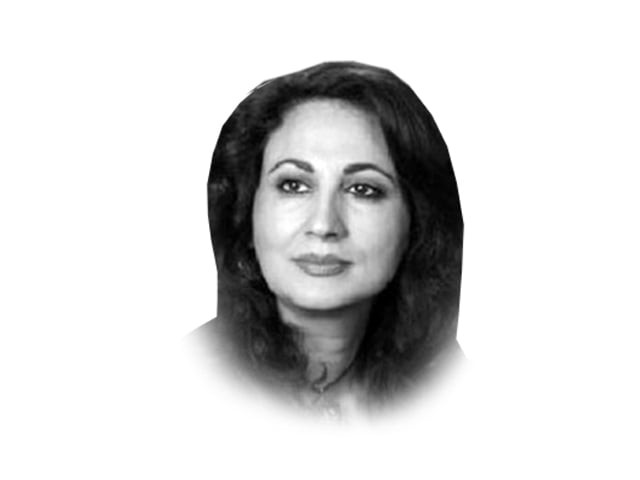The fire this time
This is not the place I knew, valley of grapevines, orchards; it's become a land of fear, with suspicion, mistrust.

The fire this time
Outside, in the yard where roses bloom in summer, hundreds of turbaned men wait, huddled against each other to combat the below zero temperature, impatient to receive other men returning from the Land of Holiness, Holy Water carefully packed in large plastic jerry cans, a sense of Pious Fulfilment lighting up tired faces. Barbed wire strung along the yard is no deterrent to these eager men come from Dalbandin and Kahan Zeelag and Awaran and Zhob. They scramble around it, over it, beneath it, in a bid to be the first to greet the returning pilgrims.
The vehicle I am in is ushered through this crowd by baton-wielding policemen. Behind us an escort vehicle blows its horn incessantly, turning on the blue light and beeper when the crowd becomes restive. In front of us is another security vehicle escorting a military officer; armed men in fatigues sit slumped, their weapons cocked and ready to shoot. Across their faces they wear masks like bandits in the Wild West, kerchiefs tied around their mouths and noses, only their eyes visible and moving silently over the uneasy mob.
I am in Quetta, a city I used to live in, where I had built a home and a career and relationships, some of which died, some which still live and flourish and connect me to a reality I had known as my own, more than half a lifetime ago. But what is this place I have arrived in, a stranger in a strange land? Who are these masked men, who are the turbaned ones, the ones with fire in their eyes and a deep bitterness in their hearts?
Fire marks the ground where I would drink tea with the young Tajik children living in a tentage village not far from the university where I taught and where I set up my first independent home. This is not the place I had known, this is not the valley of grapevines and apple orchards, of poplar trees erect in a landscape ringed by purple mountains and a terrazzo of verdant green, sunlight on silent rock. This has become a landscape of fear, a canvas painted with blood, stained with suspicion and mistrust. Mother’s wait for sons who never return, father’s lament the day their progeny was born. And at the crossroads of what is fair and just and what constitutes notions of national interest, graves stretch endlessly like sentinels watching over the living.
In 1984, when I came to live in this city, natural gas had not yet been supplied to the capital of Balochistan. The young women in the family I shared a life with had never been to school. Most young men I saw in the streets or in the bazaars had nowhere to go, and the ill and feeble stood in long lines outside the Civil Hospital, waiting for medical attention. Not much has changed almost a generation later; those who wielded power remained powerful, those who did not, suffered silently. They are silent no more.
The flames continue to blaze as I make my way through half-familiar streets, the midnight retreats of stray dogs and lonely men. The city is painted orange with the fire; it is asleep now, as if fires burn with such regularity that arson becomes a routine and death just another way of life. I want to go back to the Tajik camp, to seek out the children, but I know they shall not be there, many must have moved on, some perhaps returned to homes which may have been nothing but bombed-out carcasses of mud-brick and clay. It has been too long, almost 30 years; a generation would have grown up, married, had children, become old, become weary. They would not know me now, even if we crossed in a deserted bazaar or spoke at a conference on the elusive peace which escapes both our nations, hijacked by warmongers intent on their imperial project, held hostage by those spawned by that project, in the name of freedom, enduring freedom.
Published in The Express Tribune, December 14th, 2011.















COMMENTS
Comments are moderated and generally will be posted if they are on-topic and not abusive.
For more information, please see our Comments FAQ